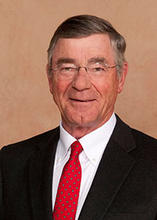The Myth of the Hero Entrepreneur
Friday, February 20, 2015
Walter Isaacson’s biography of Apple founder Steve Jobs is titled simply Steve Jobs. Aside from the fact that it is biography, there are some good reasons for that. First, Steve Jobs and the Countless Others Who Helped the Inventive Genius Revolutionize the Tech Industry doesn’t have much of a ring to it. But more to the point, society worships heroes—especially those perceived to be lone visionaries who, against all odds, work impossible hours to bring to fruition something we just can’t imagine living without. Like Steve Jobs.
Trouble is, those heroes we love don’t exist.
“If you really look at the process by which entrepreneurship unfolds, in every case, it’s always a collective achievement,” says Andrew Van de Ven, strategic management & entrepreneurship professor at the Carlson School of Management. “What the research shows is that successful entrepreneurship involves many heroes, all working together, running as a pack, if you will, and it’s folklore to think of there being one key hero.”
Debunking the myth that entrepreneurs are people who are somehow uniquely skilled and talented, Van de Ven says it is usually the “idea person” behind a product or company who gets cast in the role of hero. But in fact, putting ideas into action is really the entrepreneurial challenge.
“We’re trying to teach students that anybody can be an entrepreneur if you find your passion and have the initiative to develop it,” he says. “We need ideas, but find me the people who can implement and coordinate something, the people who are getting Cs, and they are the ones who become entrepreneurs.” One of the biggest reasons is that they understand the importance of a good team. “What really makes a good entrepreneur is the ability to span boundaries between customers, technology, and finance, so you have to get out there and match yourself with others who have complementary skills.
“I side with the interpretation that entrepreneurial behavior is largely learnable."
Like Van De Ven, Strategic Management & Entrepreneurship Associate Professor Dan Forbes teaches students that entrepreneurs are not special kinds of people. Rather, he believes, entrepreneurial behavior largely flows from certain kinds of knowledge and skill, much of which can be learned, and some of which can be taught.
“I side with the interpretation that entrepreneurial behavior is largely learnable,” Forbes says. In the last 20 years or so, he says, researchers who study entrepreneurship have changed their focus from who entrepreneurs are to what they do. In Forbes’s classes, students learn skills like problem solving and how to think in a futuristic, empathetic way. “People are what markets are built of, so before we think about products, we have to think about, ‘Who are the people and what are their needs?’” he says.
Forbes and Van de Ven assert that genetics plays a role in successful entrepreneurship, too. “We know that genes affect people’s behavior in complex ways,” Forbes says. “But there is almost never one gene that says if you have this, you will engage in this behavior, and that’s all the more true for entrepreneurship because it is a function of so many factors coming together over time.”
By way of example, Forbes points to Ralph Lauren’s daughter, Dylan, who owns a successful chain of candy stores. How did this happen? “Genes may be involved, or maybe she acquired knowledge and skills over time by listening to her dad talk over family dinners,” he says. “Or maybe she was able to tap into her dad’s connections to get started.” Wealth doesn’t hurt, either.
And then there is magic, mystery, and genius. “Some people just have that individual creative element that others don’t,” Forbes says. “It’s kind of like cooking. I can teach someone how to slice onions and sauté things, but when they go into the kitchen, they have to be able to come up with something that they imagined.”
By Meleah Maynard
This story was originally published in the winter 2015 issue of Minnesota Magazine

